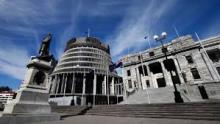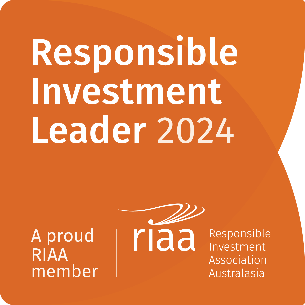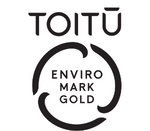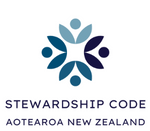Better Governance Required at the Top

5 February 2020
This month’s interest piece is an article written by our Chairman, Paul Glass. As you will be aware, corporate governance is an issue that we take very seriously at Devon, and we believe that good governance standards should also apply to the New Zealand Government.
However, before we examine these governance matters, we felt it appropriate to first comment on the evolving situation in respect of Coronavirus (Covid-19). We believe that we have positioned our portfolios appropriately for current market developments. We have an investment style which focuses on owning high quality businesses that are supported by attractive valuations. This approach, together with careful sector selection, has minimised our exposure to those companies which are most directly exposed to the effects of the virus, such as Retail and Tourism, and should ensure that we can navigate the volatility currently being seen. As is often the case in situations such as this, the first stage of response in the markets is one of indiscriminate selling (where all stocks are sold down) but eventually a more rational approach to pricing typically emerges and it is in this environment where we expect our active approach to be rewarded.
Read below for Paul's full article:
New Zealand rightly prides itself on being rated as a relatively corruption-free country. In international corruption and transparency surveys we typically place in the top three countries, usually alongside the Nordic nations.
This status has been hard fought and in part is based on our culture of valuing fairness, of giving everybody a fair go, which is arguably different from American culture and its stronger focus on personal freedom.
Our status as a relatively corruption-free country is vitally important as it allows us to attract much-needed overseas investment and encourages businesses to set up in NZ. It contributes directly to our economic growth and prosperity.
Corruption, as they say, is a slippery slope and it is incumbent on us all to call it out when we see it. We only need to look at the US as an example of how quickly a democracy can be damaged when politicians play to win at all costs.
I'm deeply concerned about two ongoing issues relating to potential corruption in New Zealand with respect to the current Labour-led Government. Both involve NZ First.
The first occurred straight after the 2017 election when National received the most votes (44.5 per cent vs 36.9 per cent for Labour). But in an unhealthy quest for power, Labour outbid National by offering NZ First a disproportionate (NZ First only received 7.2 per cent of the votes) say in the running of NZ, offered NZ First leader Winston Peters the "baubles of office" as Foreign Minister among other roles, and agreed to establish an unprecedented $3 billion slush fund (the Provincial Growth Fund).
It is this fund that has all the hallmarks of banana republic politics. Its $3b, or $1b per annum, is an extraordinary sum of money and could fund many worthy projects. To put it into context we could double Pharmac's budget each year, build 150 new schools, provide breakfasts for kids at lower decile schools, eradicate all pests, fund 120,000 hip operations or provide almost free public transport to all New Zealanders; all actions that might make a meaningful difference to NZ, unlike the fund.
The fund is likely to be a financial disaster and, outside of buying votes, struggles for a reason to exist. It is reminiscent of the Development Finance Corporation, the Government investment entity that went bust in 1989, damaging NZ's international reputation.
Under the fund's so-called governance structure, politicians decide where the money is to be spent.
NZ First ministers appear to be openly using this fund to garner votes in a way that would be almost comical if it weren't so unseemly.
The second, and potentially related issue, is the revelation that the funding arm of NZ First, the NZ First Foundation, appears to be in breach of at least the spirit, if not the actual letter of the law, with respect to receiving political donations. This matter has now been referred by the police to the Serious Fraud Office for investigation.
As part of the disproportionate deal with Labour, New Zealand First has four portfolios inside Cabinet and one outside.
Prime Minister Jacinda Ardern's refusal to question Peters on the donations saga would not be acceptable of industry leaders in other walks of life.
On October 26, 2017, Peters assumed the positions of Deputy Prime Minister, Minister of Foreign Affairs, Minister for State Owned Enterprises and Minister for Racing. Given the roles NZ First plays in government and with the money splashed out by the Provincial Growth Fund, it is vitally important that the electorate knows who is funding the party and whether any conflicts of interest exist.
Winston Peters unfortunately has previous poor form in this space. After NZ First's 2008 funding scandal, he was censured for "knowingly providing false or misleading information on a return of pecuniary interests".
It is simply not good enough for Jacinda Ardern, as Prime Minister and in a coalition government with NZ First, to defer the matter until the SFO decides whether to lay charges or not. That is an absurdly high benchmark to measure behaviour against and politicians would rightly be aghast if councils, SOEs or businesses used that as their ethical yardstick.
In fact, the hypocrisy is quite appalling at a time when the Government has introduced legislation requiring the financial services sector to focus on conduct and culture or face stiff penalties. Banks and insurance companies are under enormous pressure from politicians and regulators to make sure that they are conducting themselves correctly, particularly with respect to conflicts of interest, but politicians clearly believe that the same good governance standards do not apply to them.
The fact that to date Ardern has refused to ask her coalition partner even the most basic questions, or investigate the matter in any way, is deeply concerning and would be unacceptable in any other walk of life. Whether through political naivety or an unhealthy hunger for power, Labour is setting a very poor example for all other NZ entities.
Rot starts at the top. Peters should be required to stand down now, as he did in 2008, under the tougher Labour leadership of Helen Clark, and NZ First should be required to excuse themselves from any government decision that could present a conflict of interest.
As we do not know who has made donations this should be an obvious course of action until the information is made public.
Before I get accused of bias myself, I should point out that I voted for Labour in the last election so have no political axe to grind in this case.
The whole area of political donations needs to be tidied up, but right now we have a coalition Government making decisions and we need urgent transparency around any conflicts that may exist.
Calling out potential corruption should be bigger than politics. We all need to protect the characteristics that make NZ special.





